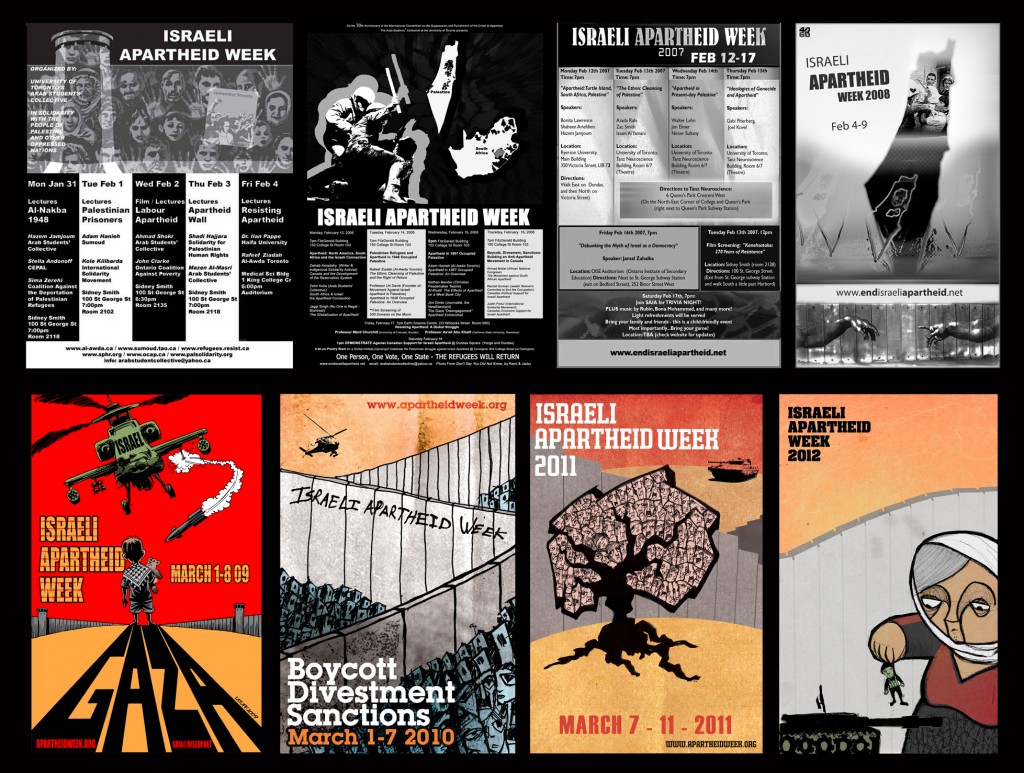The annual Israel Apartheid Week (IAW) held a series of events from March 14th, 2016 to March 23rd, 2016 on university campuses across Montreal. IAW is an international campaign that stands in solidarity with the Palestinian people and seeks to support the growing Boycott, Divestment, and Sanctions (BDS) movement against Israeli apartheid. According to IAW Montreal’s website, the two main objectives of the campaign are to educate the public about the colonial realities in Palestine and to connect with local activists working on related issues.
On March 16th a panel to raise awareness surrounding the issue of colonization in Israel and Canada took place in McGill’s McConnell Engineering Building. Sitting on the panel were a group of human rights advocates from Palestine as well as a former First Nations Chief. The panel’s goal was to draw ties between the colonial policies taken up by Canada in the past and present and the policies being implemented in Israel today.
Two panel members Badee Dwaik and Bob Lovelace have remained heavily involved on the front lines of the conflict. Lovelace, a Professor at Queen’s University and a former First Nation’s Chief, has reappropriated his experience battling colonial policies here in Canada in order to bring humanitarian aid to the Gaza Strip. These two panelists played a complementary role in bringing into focus humanitarian concerns both at home and abroad.
The IAW event brought in many students who otherwise did not know much about the topic and called into question practices taken up by Canada. Students seemed interested in the panel’s ability to illuminate the ties that exist between Canadian and Israeli policies. When asked about their experience at the event, one student told The Bull & Bear,
I didn’t know much about the Palestinians’ plight before going. And the biggest thing I took away was the parallels in the methods of cultural annihilation between Israelis and Canadian settlers. I had never made that connection before.
The events held by IAW are controversial around campus, especially with regards to their affiliation with the BDS movement. So we decided to ask attendees what they thought about events such as IAW being held on university campuses. Particularly, whether or not they thought these events fulfill their aim of educating the public or if they just work to further divide the issue. McGill student Hui Wang remarked that,
of course [these kinds of events] foster education and understanding. It would be nice to hear both sides of the issue by inviting Israeli advocates. But having these events, one sided or not, provokes thinking.
However, not all students agree that IAW is really invoking public education. We posed the same questions to students around campus, and though the majority agreed that these events promote critical thinking, some held an opposing view. One student in particular, who has chosen not to be named, commented on the campaign’s ability to educate the public, but stated that
if the goal was to really educate people, the events would not be called Israel Apartheid Week – calling it this inevitably makes the discussion one-sided. It is okay to hold the events on campus but it would be more productive to allow for multiple opinions.
It is apparent that events held by IAW may be in need of some improvement in terms of their diversity of perspectives. However, what it has accomplished is drawing students’ attention to important current events and subsequently fueling an open dialogue on campus. Fostering discussion amongst students, whether it be in opposition or otherwise, is an important starting point for instilling change, and in that sense, IAW has succeeded.


